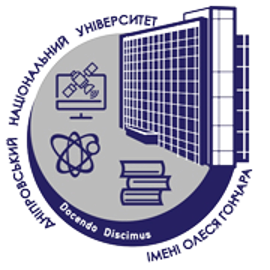Роль неявних знань на різних етапах наукового дослідження: за матеріалами міркувань та спогадів видатних вчених ХХ століття
DOI:
https://doi.org/10.15421/272316Анотація
Дослідники феномену неявних знань не приділили достатньої уваги питанню про специфіку їх участі в різних етапах наукового дослідження. Одним зі змістовних джерелінформації щодо цього питання можна вважати роздуми на цю тему найвидатніших на уковців. Тому метою роботи є аналіз ролі та функцій неявного знання на різних етапах науково-дослідного процесу, спираючись на матеріали самоспостереження та самоаналізу дослідників-науковців, що брали безпосередню участь у науково-пізнавальній діяльності. Основними методами в нашій роботі були аналіз та синтез, порівняння й зіставлення, а також історичний і генетичний методи. Оскільки переважна більшість дослідників приділяла увагу лише завершальному та найбільш творчому етапу відкриття нового знання і ролі неусвідомлених компонентів у цьому процесі, ми обрали інший шлях – предметом нашого аналізу стали найперші й найменш досліджені етапи пошуку і формулювання проблеми дослідження, а також етап отримання емпіричних даних. Основні результати. Спираючись на міркування видатних вчених ХХ ст. – А. Ейнштейна, А. Пуанкаре, Ж. Адамара, можна впевнитись у тому, що глибинні передумови теоретичного вибору беруть свій початок в інтуїтивно очевидних для широкого кола наукової спільноти уявлень про структуру і характеристики реальності, які «вбудовані» в наукову теорію. В цьому процесі беруть участь найбільш фундаментальні фрагменти неявних знань, які однаковою мірою визначаються як культурно-історичним середовищем, так і особистісними особливостями й пристра- стями конкретного вченого. Такі неявні знання становлять основу «картини Універсуму», яку описав у своїй роботі М. Полані. Слід зазначити, що початковий вибір проблеми для дослідження здійснюється неусвідомлено з того матеріалу, який існує в неявній формі, тому на вибір можуть впливати витіснені пласти неявних знань, які перебувають поза контролем свідомості. Іноді витіснені неявні знання стають причиною негативного вибору, навіть відмови від тієї чи іншої теоретичної побудови, а також навіть «необґрунтоване» забування правильно поставлених проблем, про що неодноразово згадував А. Пуанкаре. У процесі отримання емпіричних даних неусвідомлені елементи можуть активно втручатися в діяльність органів чуттів і таким чином впливати на результати суто фізіологічного процесу сприйняття. Деякі дослідники навіть вважали, що процес наукового сприйняття і спостереження є одночасним поєднанням сприйняття і «початкової» інтерпретації, яка, на відміну від інтерпретації факту як раціональної процедури, у явному вигляді не формулюється. Проведений аналіз дозволив дійти таких висновків. Знайомство з працями Ж. Адамара, А. Пуанкаре та інших вчених ХХ ст. довело, що неявні знання включаються до науково-пізнавальної діяльності на найперших її етапах. На початку дослідження найбільш активним є глибинний шар неявних знань – передумовні, світоглядні й інші, що входять до загальної картини Універсуму. Їх функціонування спільно з цілеспрямованим логічним мисленням стимулює активізацію нових найрізноманітніших типів неявних знань. Отже, подальший аналіз робіт видатних науковців, які так чи інакше стосуються процесу отримання нового знання, надасть змогу більш ґрунтовно дослідити проблему неявного знання як елемента неусвідомленої когнітивної системи людини. Наукова новизна дослідження полягає в тому, що зібрано значний матеріал з робіт видатних вчених, який не лише підтверджує активну участь неявних знань у науково-дослідній діяльності, але й дозволяє проаналізувати специфіку цієї участі на різних етапах пізнання. Стаття має оглядовий та теоретичний характер.





